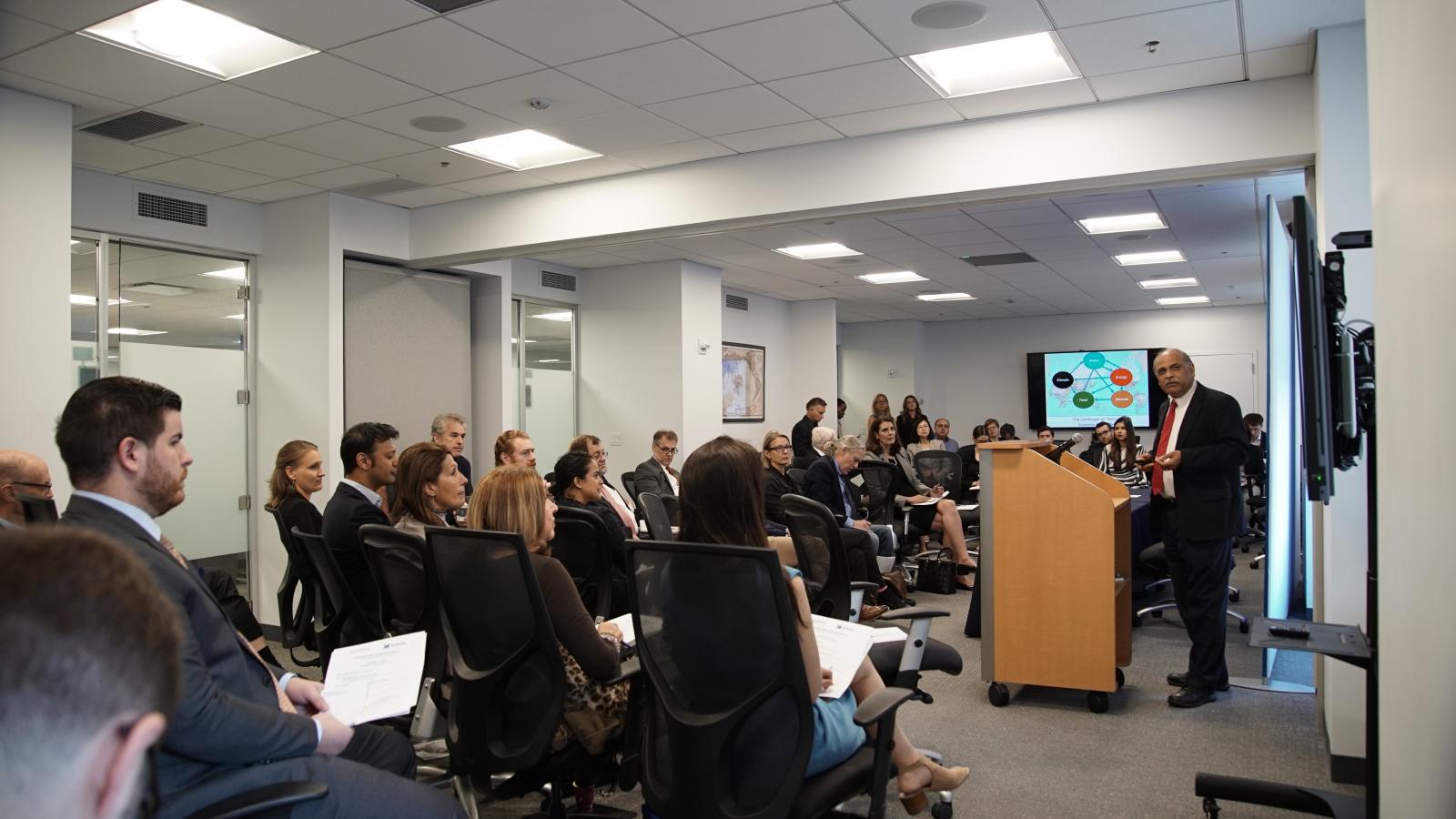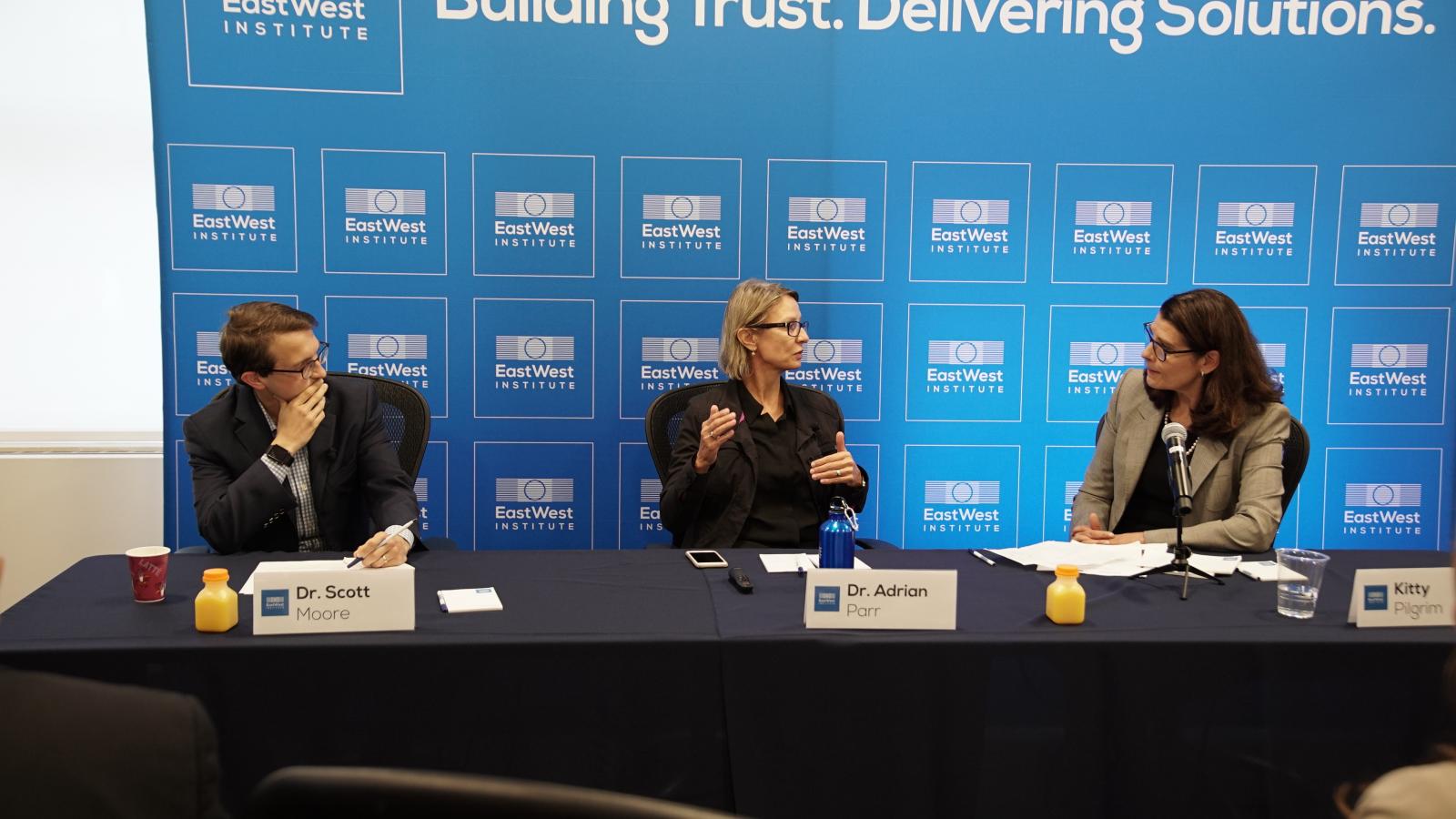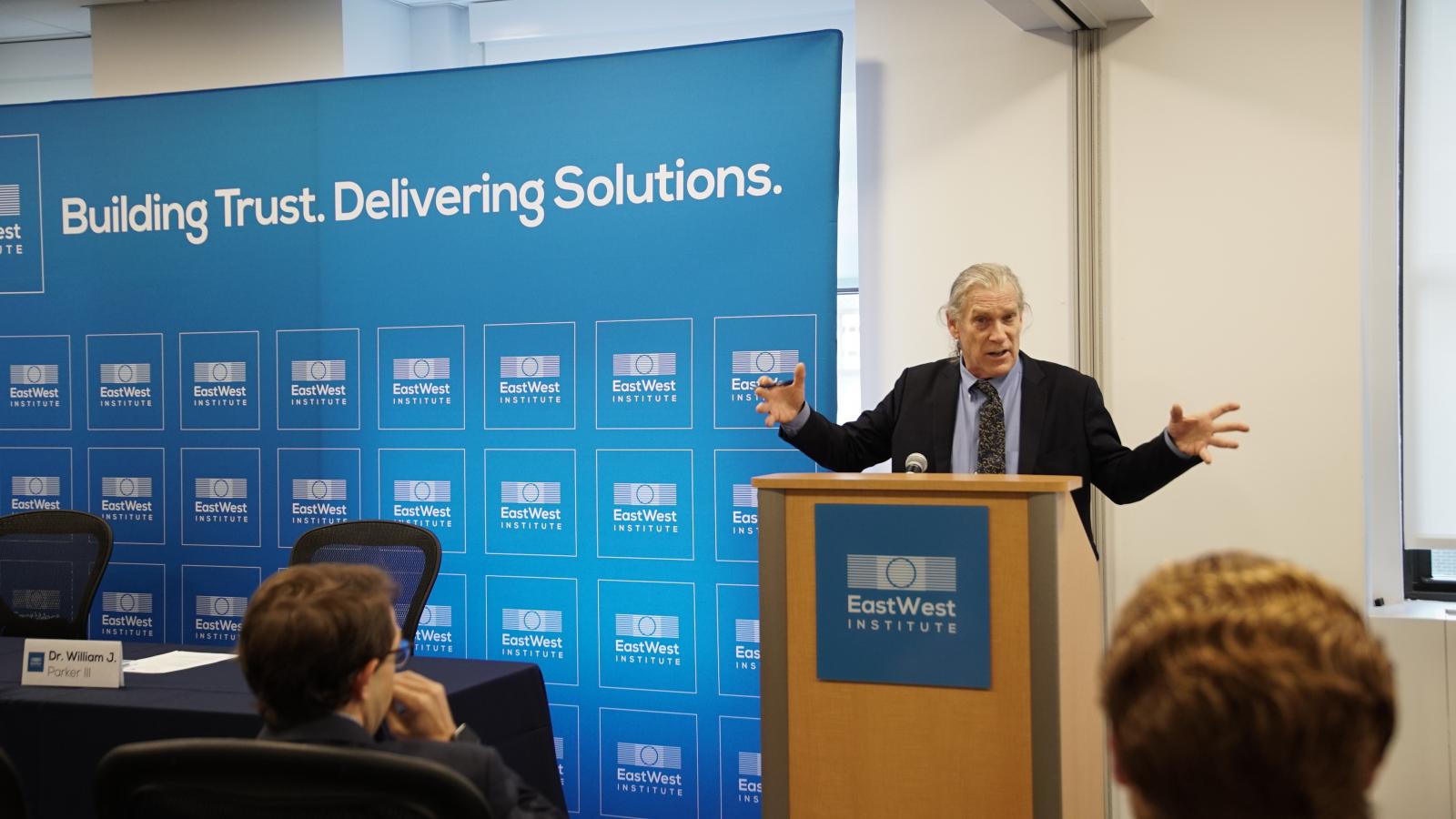The EastWest Institute Transitions for Post-COVID World
Institute to Maintain its Legacy and Mission at New Institutions
After four decades of distinctive service, the EastWest Institute’s (EWI) Board of Directors has resolved to establish a partnership with the College of Charleston to preserve the legacy of EWI visionary founder and leader, the late John Edwin Mroz; transition its programs to four new organizations to secure their continuity; and discontinue operation under the current business model, effective January 31, 2021. This decision was taken at the conclusion of a four-month strategic assessment in light of increasing challenges resulting from the global pandemic and related financial challenges facing many nonprofit organizations. The Board unanimously and enthusiastically approved the transition plan.
“The pandemic has shifted attention and resources from international, strategic concerns to more local and immediate ones—the current environment demands new approaches to accomplish the goals of international conflict avoidance and resolution that EWI has pursued with such dedication and success over the past 40 years,” says EWI CEO and President Bruce W. McConnell. “After considering a broad range of options, EWI has settled on a two-pronged approach, assuring that our remaining endowment goes towards supporting EWI’s mission, as well as maintaining and enhancing the legacy of the institute.”
To ensure that the spirit and mission of John Edwin Mroz endures for generations to come, EWI has formed a unique partnership with the College of Charleston’s School of Languages, Cultures and World Affairs (LCWA). LCWA has a special connection to EWI, as Mroz was instrumental in the school’s creation at the College of Charleston. LCWA will house the newly established John Edwin Mroz Global Leadership Institute, which has as its mission to give students at the college the opportunity to develop high-level international skills necessary to pursue a life-long career capable of global impact. The Institute will also promote the legacy and values of EWI and Mroz, educating new generations as to the methods and benefits of Track 2 diplomacy, sponsoring research and scholarship on its history and impact with special focus on EWI’s history, and maintaining EWI’s global network of influence.
The second element of the transition involves the transfer of EWI’s ongoing programmatic work to four highly-respected foreign policy organizations: the Stimson Center, Observer Research Foundation America, the Atlantic Council and the George H. W. Bush Foundation for U.S.-China Relations.
EWI’s Middle East and North Africa work, including the Iran-Saudi Dialogue and work to stabilize Iraq’s relations with its neighbors, will move to the Stimson Center, an independent research center promoting international security, shared prosperity and justice. Stimson’s well-recognized work on water and energy issues will be enhanced by the addition of our hydro-diplomacy project. Stimson will also take on both the U.S.-China military-to-military dialogue and the U.S.-Russia military-to-military dialogue.
“It is clear that Stimson shares EWI’s values and methods: Independence, peace building and deep stakeholder engagement,” says Admiral (ret.) William Owens, EWI board member and former vice chairman of the Joint Chiefs of Staff. “They also have three decades of experience conducting Track 2 and Track 1.5 diplomacy.”
The institute’s Global Cooperation in Cyberspace programmatic work to encourage countries in the Global South to participate in international efforts to moderate the use of cyber weapons and research to improve the security of the technology supply chain will be transitioning to Observer Research Foundation America, the new Washington-based center of India’s leading think tank, the Observer Research Foundation.
EWI’s Balkan Dialogues initiative is migrating to the Future Europe Initiative at the Atlantic Council, complementing the Initiative’s existing work on the Western Balkans, which seeks to build further Euro-Atlantic political and economic integration. EWI’s U.S.-China High-Level Political Party Leaders Dialogue will be hosted by the George H. W. Bush Foundation for U.S.-China Relations, which has extensive experience organizing Track 2 diplomatic discussions between current and former government officials from the United States and China.
Jonathan Fanton, eminent nonprofit thought leader and former president of The John D. and Catherine T. MacArthur Foundation, commended EWI’s transitional approach, noting that “EWI is setting a positive example of an orderly transition which honors its founder, John Edwin Mroz, protects its staff and current programs, maintains a global network of experts and provides the basis by which to educate the next generation about unique approaches to conflict prevention, which will prove valuable to our future.”
The EastWest Institute was founded by John Edwin Mroz in 1980 as an independent, global organization that promotes peace by creating trusted settings for candid, global discourse among leaders to tackle intractable security and stability challenges. Mroz served as president and CEO of the institute for 34 years until his death, in 2014. EWI has a long-standing track record of convening dialogue and backchannel diplomacy to develop sustainable solutions for major political, economic and security issues. The organization’s initial success was rooted during the Cold War—in fact, EWI hosted the first ever military-to-military dialogue between NATO and Warsaw Pact countries. From its roots as a European-American initiative to bridge the divisions between Europe and Eurasia, John Edwin Mroz built the institute into one of the world’s pre-eminent non-governmental change-agent institutions.
“For 40 years, EWI has been recognized around the world as an independent, trusted adviser driving meaningful dialogue and building trust between global leaders and key representatives of government, military, business and civil society,” reflected EWI Chairman of the Board Ross Perot, Jr. “We are pleased to collaborate with five highly regarded organizations on the successful transfer of EWI legacy and programs, which is a testament to the continuing importance of this difficult work.”
“As EWI enters its final stage, I would like to recognize the incredible EWI family—our current and former board members, government and corporate leaders, financial sponsors, fellows and staff—that have made EWI such an amazing force over the years,” added Karen Linehan Mroz, wife of EWI’s late founder and member of the EWI Board of Directors. “We have much to be proud of, including this orderly and inspiring rebirth into a new future.”
For inquiries, please contact:
Alex Schulman
aschulman@eastwest.ngo



